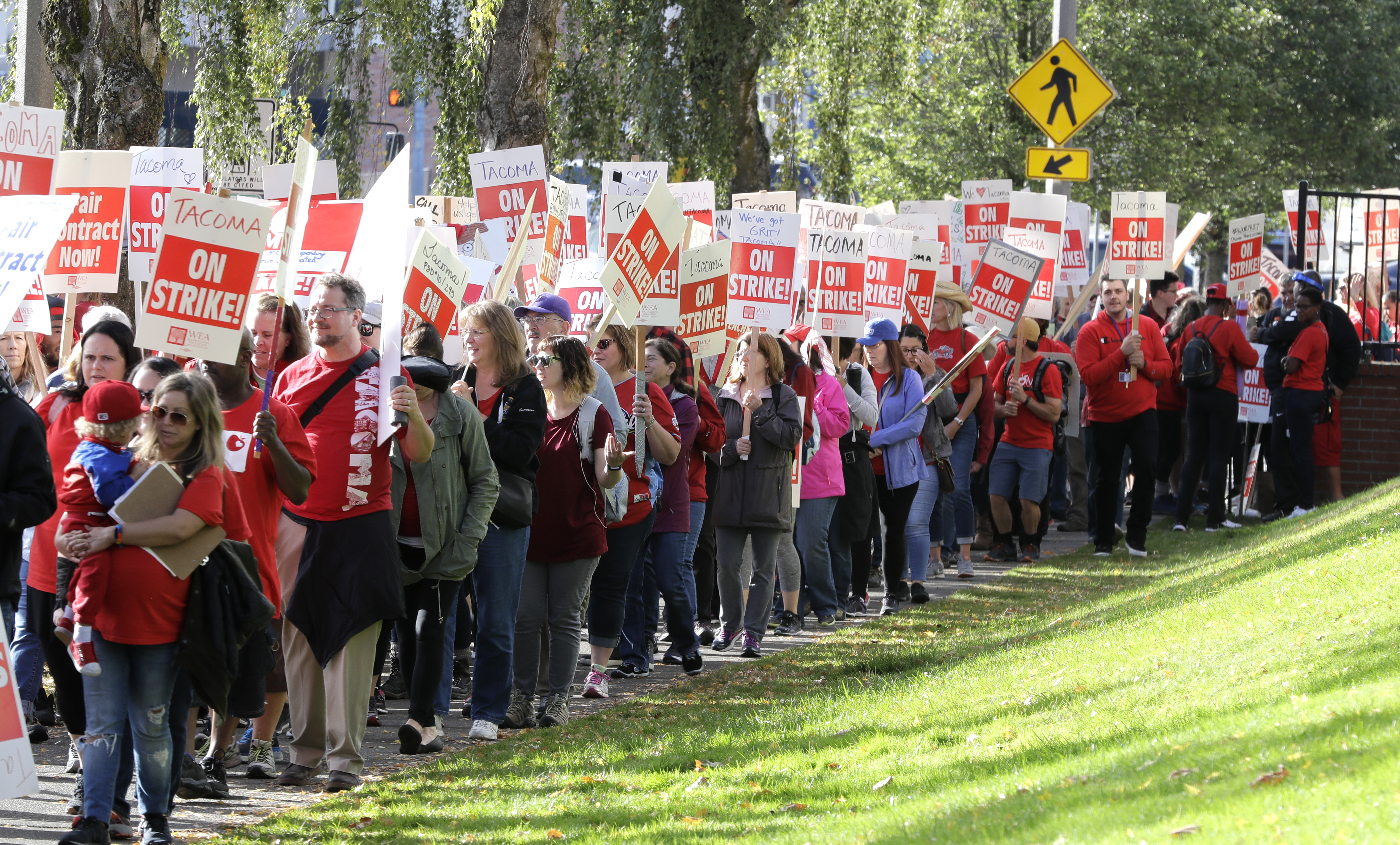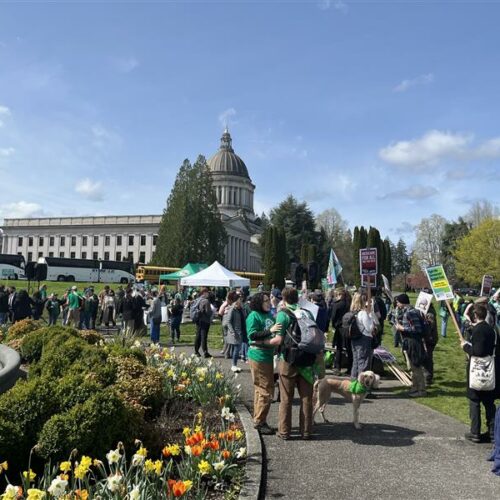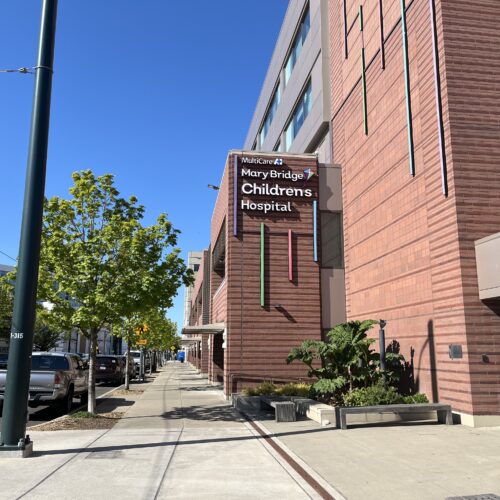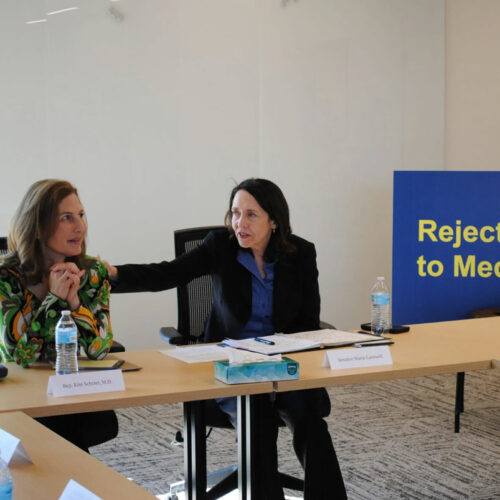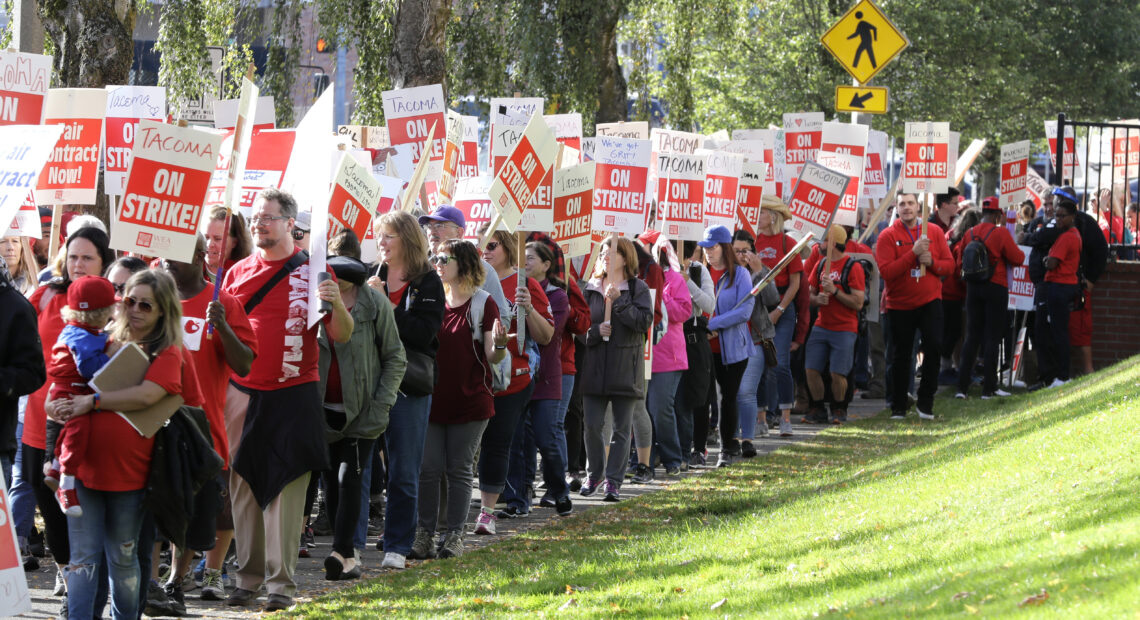
Unpacking Senate Bill 5041: Unemployment benefits for striking workers
Listen
(Runtime 4:28)
Read
By Phineas Pope and Lauren Gallup
Phineas Pope: When workers go on strike in Washington state, they don’t earn any money. But a new piece of legislation could change that. NWPB’s Lauren Gallup is here to discuss.
So, Lauren, what are some of the key takeaways from Senate Bill 5041? How would it change current policies for striking workers?
Lauren Gallup: So what this bill is proposing is that striking workers could apply for unemployment benefits and get some wages while still on strike, but there are some restrictions to that. Striking workers could only start applying about two weeks after they start striking. The way it’s written is the second Sunday, so that’s just to kind of add a time element to this. Sometimes strikes are resolved fairly quickly. But the idea was for low wage workers that are maybe going to be striking for multiple weeks to give them some wages back. And then lawmakers have it right now that striking workers could only collect four weeks of unemployment. So, again, to kind of add a time cap, it’s not unlimited funding.
Pope: Now, a version of this bill died in last year’s legislative session. Why are lawmakers confident it will be different this time around?
Gallup: Last year was an even numbered year, and the way Washington does their sessions is there’s different numbers of days for on and off years. So this is a longer legislative session, it’s 105 days. There’s more time for lawmakers to kind of work out some of the kinks within bills. There’s also the fact that last year, a version of this did pass through the House. And because it’s a new session, there are some lawmakers that were previously serving in the House that have now been elected to Senate positions. So they’re already familiar with this bill, perhaps they were supportive or were leaning towards supporting it.
Pope: And who have you talked to that this legislation would affect?
Gallup: I spoke with one hotel worker who works at a hotel in SeaTac, and she’s actually one of 400 workers who, last fall, went on two strikes from hotels in the SeaTac area. Her name is Pearl Johnson.
Pearl Johnson: If I was able to, you know, have that opportunity to, have the ability to withdraw unemployment, especially in that time, I probably wouldn’t have stressed so much about it. I lost a lot of sleep over it, definitely.
Gallup: She was really dedicated to getting a good and fair contract and she and her colleagues just felt like the company was not budging on that with the union. So that’s why they decided to go on strike. She wanted to secure a better future for her and her colleagues by doing that, but going on strike had some real impacts to her and her family, and she told me when we talked just last week, that she’s still recovering from some of those financial impacts.
Pope: Right. If this bill passes, how are labor disputes and strikes going to look in Washington going forward?
Gallup: I talked with Sen. Steve Conway, who’s a co-sponsor of the bill.
Sen. Steve Conway: My hope with this bill, given my background and my experience, is that it will improve the collective bargaining process by giving more incentives to the employer to reach a decision, so we do not have strikes.
Gallup: Sen. Conway and other lawmakers have seen in recent years, companies use unfair bargaining tools and kind of hold over employees that they’re not going to want to go on these long strikes. The other part of this too, the way the bill is written currently, is that the onus would be on the company whose employees are on strike to pay that additional unemployment tax. It was purposely done that way, so there’s less of this impact to the system as a whole, but more on the company. And then just as a broader system, allow more, I think, labor action in our state.
Pope: And Lauren, what’s the timeline on this bill going forward?
Gallup: So, the first reading of the bill was on Monday, the first day of the legislative session, and then it was referred to the Labor & Commerce Committee. If it were to move through that committee, it would go to the Senate floor for discussion and then potential passage, so it’s in the Senate right now. The bill might change over time too, so some of the specifics could change, but we’ll see.
Pope: That’s reporter Lauren Gallup. Lauren, thanks so much.
Gallup: Thank you, Phineas.

